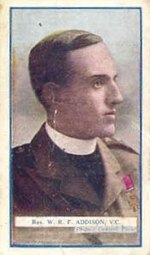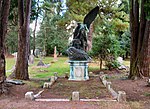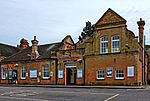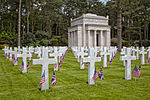Alexander William Williamson
1824 births1904 deaths19th-century British chemistsAcademics of University College LondonBurials at Brookwood Cemetery ... and 7 more
Corresponding members of the Saint Petersburg Academy of SciencesEnglish chemistsEnglish people of Scottish descentEngvarB from August 2014Fellows of the Royal SocietyRoyal Medal winnersScientists from London

Prof Alexander William Williamson FRS FRSE PCS MRIA (1 May 1824 – 6 May 1904) was an English chemist. He is best known today for the Williamson ether synthesis.
Excerpt from the Wikipedia article Alexander William Williamson (License: CC BY-SA 3.0, Authors, Images).Alexander William Williamson
Avenue St. Margaret,
Geographical coordinates (GPS) Address Nearby Places Show on map
Geographical coordinates (GPS)
| Latitude | Longitude |
|---|---|
| N 51.29739 ° | E -0.625679 ° |
Address
Avenue St. Margaret
Avenue St. Margaret
England, United Kingdom
Open on Google Maps









